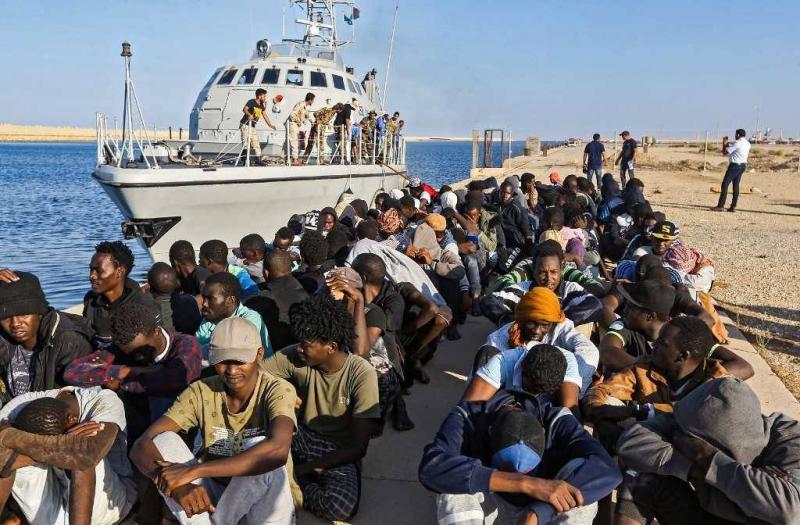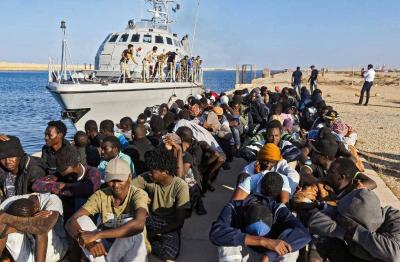Pope Francis urged the international community on Sunday to address the migration crisis originating from Libya, despite disagreements among European Union leaders on the best way to manage the flow of migrants to Europe. Speaking after the traditional Sunday prayer in St. Peter's Square at the Vatican, he said, "I express my closeness to the thousands of migrants, refugees, and others in need of protection in Libya: I will never forget you, I hear your cries, and I pray for you."
He added, "Many of these men, women, and children are subjected to inhumane violence. I again ask the international community to fulfill its promises to seek common, concrete, and lasting solutions to manage migration flows in Libya and throughout the Mediterranean Sea," as stated on the Vatican's website.
The Pope emphasized that governments must stop returning migrants to "unsafe countries" like Libya and prioritize saving lives in the Mediterranean "through rescue operations, disembarkation from ships, ensuring dignified living conditions for them, providing alternatives to detention, regulated migration pathways, and access to asylum procedures."
Italy continues to face waves of migrants crossing the Mediterranean from Libya, with hundreds arriving daily on its shores. On Sunday, the Alarm Phone initiative, which seeks to assist migrants, reported that two rubber boats in the Mediterranean carrying 60 and 68 people urgently needed intervention.
For its part, Doctors Without Borders stated that the humanitarian ship Geo Barents rescued 95 more individuals on Saturday night, bringing the total number of migrants it has saved to 296. However, at the European Union level, attention has shifted from the Mediterranean to the border between Belarus and its neighbors Latvia, Lithuania, and Poland, as thousands of migrants have attempted to cross from Belarus to Eastern EU countries in recent months.
A two-day summit of EU leaders that concluded on Friday revealed ongoing disagreements among member states regarding migration issues, amid calls from several countries, including Poland and Lithuania, for the EU to finance the construction of barriers.




